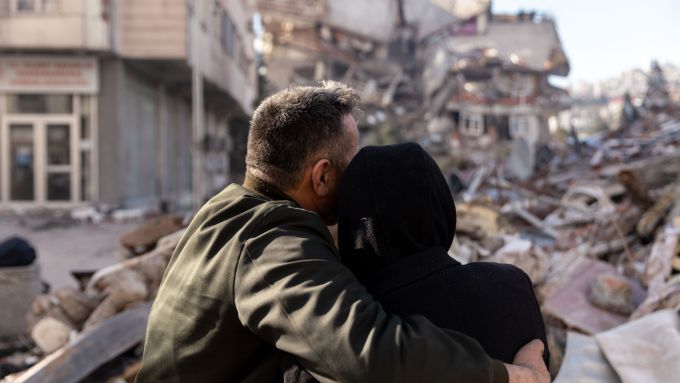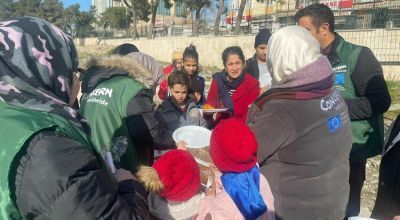
Read our 2023 annual report

Knowledge Hub
At 4.17am on February 6, a magnitude 7.8 earthquake struck Türkiye (Turkey) and Syria, causing massive destruction and loss of life. Another major tremor at lunchtime on Monday caused further destruction and aftershocks are continuing.
An estimated 20,000 people have been confirmed dead so far and tens of thousands more were injured. Many people are still trapped beneath rubble, and hundreds of thousands have been left homeless. Frigid weather has made the situation worse for both survivors and rescuers. Concern’s Regional Director, Fiona Gannon, said:
These have been some of the strongest earthquakes in a 100 years and aftershocks have disrupted communications and electricity supplies, many people are too afraid to go inside, choosing to sleep in their cars instead.
Turkey is one of the most seismically active areas in the world — in 1999 a major earthquake in Izmit killed some 17,000 people — but the East Anatolian Fault has been mostly quiet over the past century. This may have contributed to a false sense of security, and it has become clear that many of the buildings in the region were not built to withstand a major seismic event.
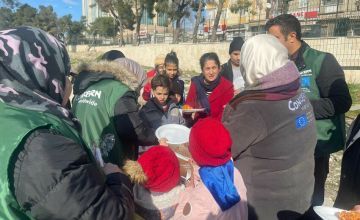
Humanitarian response
Concern has been working in some of the most affected areas in Turkey - Gaziantep and Şanlıurfa - since 2013, through livelihood, education and protection programming.
The organisation’s 500 Turkish and Syrian staff survived the earthquakes, but were left traumatised and many are working from their cars due to the fear of more buildings collapsing during the hundreds of aftershocks that are still ongoing.
While rescue efforts continue, both in Syria and Turkey, a major priority for local authorities and organisations like Concern is to support those who have been left homeless by the earthquake.
The Concern Worldwide team in Şanliurfa quickly began to deliver blankets, food, and other essentials to centers of refuge. They have been also helping to construct temporary shelters for those with nowhere to go.
World Health Organisation (WHO) senior emergencies officer Adelheid Marschang told the UN health agency’s executive committee that as many as 23 million people across Turkey and Syria “are exposed”. This includes around over one million children.
The pressure on services, especially in conflict-affected areas of north-west Syria, will increase over the coming days and weeks. Many of those affected have already been displaced and traumatised by years of conflict, and much of the core infrastructure has been badly damaged, complicating aid efforts.
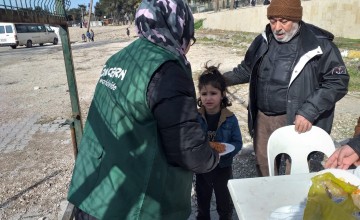
Concern Worldwide’s Kirk Prichard reports that country teams are working with local authorities and partners to assess humanitarian needs and design an appropriate response.
“Concern is uniquely well-positioned to respond to this disaster with pre-positioned emergency supplies and hundreds of staff members already in the region. We will do everything in our power to help.”
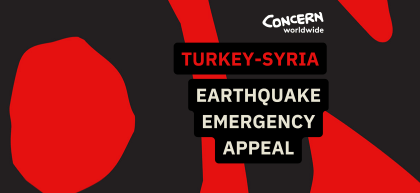
Other ways to help
Corporate support
Is your company interested in working together for a common cause?
Fundraise for Concern
From mountain trekking to marathon running, cake sales to table quizzes, there are lots of ways you can support our work.
Buy a gift
With an extensive range of alternative gifts, we have something to suit everybody.
Leave a gift in your will
Leave the world a better place with a life-changing legacy.
Volunteer with Concern
The lots of ways to get involved with our work as a volunteer
School fundraising
Without the generous support from schools, we wouldn't be able to do the work that we do.


